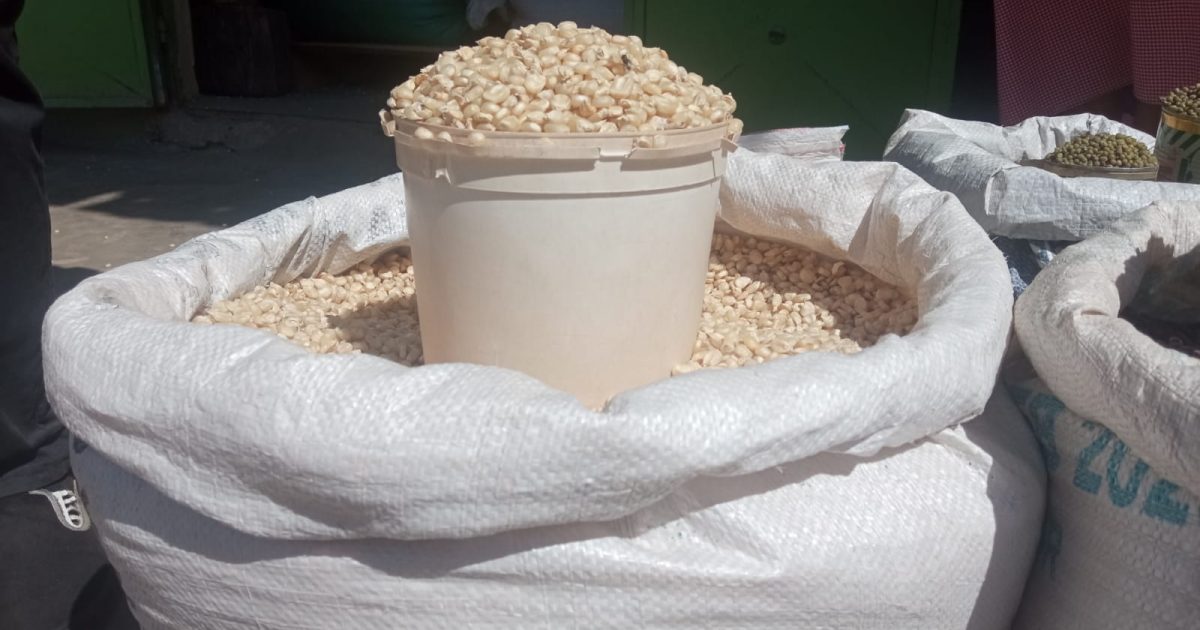The price of maize has dropped by Sh1000 as part of the country’s harvesting season kicked off, leading to a drastic drop in maize prices from Sh6,500 to Sh5,500 per 90 kilogramme bag in two months.
Following a spot check by the KNA in Narok, the maize price for a 2kg tin is selling at Sh160, down from Sh200 two months ago.
Elizabeth Topisa, a trader in Narok town, confirmed that they were buying a 90-kg bag of maize for Sh4,500 from the farmers and selling the same for Sh5,500.
Topisia said that due to depressed rains this season, farmers were not harvesting enough maize compared to last year. She noted that in some parts of the county, farmers were experiencing bumper harvests.
These areas include Lulunga, Lolgorian, Loita, and some parts of Mau, where farmers are experiencing bumper harvests.
According to the traders, prices of farm outputs might rise again because, in some parts of the county, crops have dried up on farms before maturing due to a lack of rain.
Another trader from Narok town, Alfred Nyamweya, said maize harvesting in Narok this season is not good because crops lack rain to keep them healthy.
Farmers were anticipating a good harvest this season because the government provided subsidised fertilisers on time, but unfortunately, in some parts of the county, crops dried up on the farm due to a lack of rain.
Traders also noted that even though maize prices have dropped for the past two months, the red flag is still on because the supply is not enough in the market.
“It is a red alert because maize farmers have not harvested enough on their farms, and we might travel outside the county and buy maize,” said Nyamweya.
In addition, Sharon Koina, a hotelier in Narok town, said corn maize prices dropped from Sh30 to Sh15, which is a relief for the residents.
She added that if the prevailing weather conditions continued, the prices of farm inputs might rise while farmers encountered losses.
By John Kaleke





